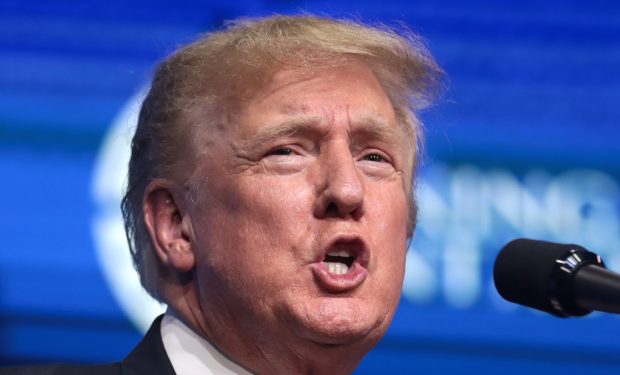Donald Trump‘s attorneys have fought back against the former president’s so-called gag orders from courts, saying any attempt to limit Trump’s speech is a violation of his First Amendment rights and may also be election interference, as Trump is currently the GOP’s presidential frontrunner.
(Trump has received narrowly tailored gag orders in two of his four pending criminal cases, though one gag order has been temporarily suspended by the judge.)
But Trump’s lawyers aren’t concerned exclusively with his own freedom of speech — they are also concerned with the prosecution’s speech and are questioning whether the government might use it to prejudice potential jurors by implication.
In setting the terms of jury selection in the U.S. District Court for the District of Columbia, prosecutors have expressed a desire to protect potential jurors from dangers that might result from Trump’s increasingly violent and threatening rhetoric on social media and in public appearances. While the prosecution has not requested strict juror anonymity as a protection, it does request that “jurors’ identifying information not be made public outside the courtroom.”
[Note: Trump recently insinuated that former Chairman of the Joint Chiefs of Staff General Mark Milley was treasonous and might warrant the death penalty. He also said that if he is president again, shoplifters can expect to be “shot” as they leave the store.]
In filing their Response to Prosecution’s Motion For Jury Procedures, Trump’s attorneys assert that the intimidation works both ways. Specifically, Trump’s attorneys imply that the very suggestion that jurors would need such identity protection could prejudice them by making them feel like they might be in danger otherwise.
Trump claims that the government, by implying that jurors may need some of the protections of anonymity, may be prejudicing the jury by their concern for its safety. Trump’s attorneys say such a maneuver would be grounds for a mistrial.
Trump’s response says specifically: “President Trump expressly objects to any suggestion that the jury faces any risk of harm due to their participation in President Trump’s trial. Such comments, if placed before the jury, would be enormously prejudicial and would warrant an immediate mistrial.”
